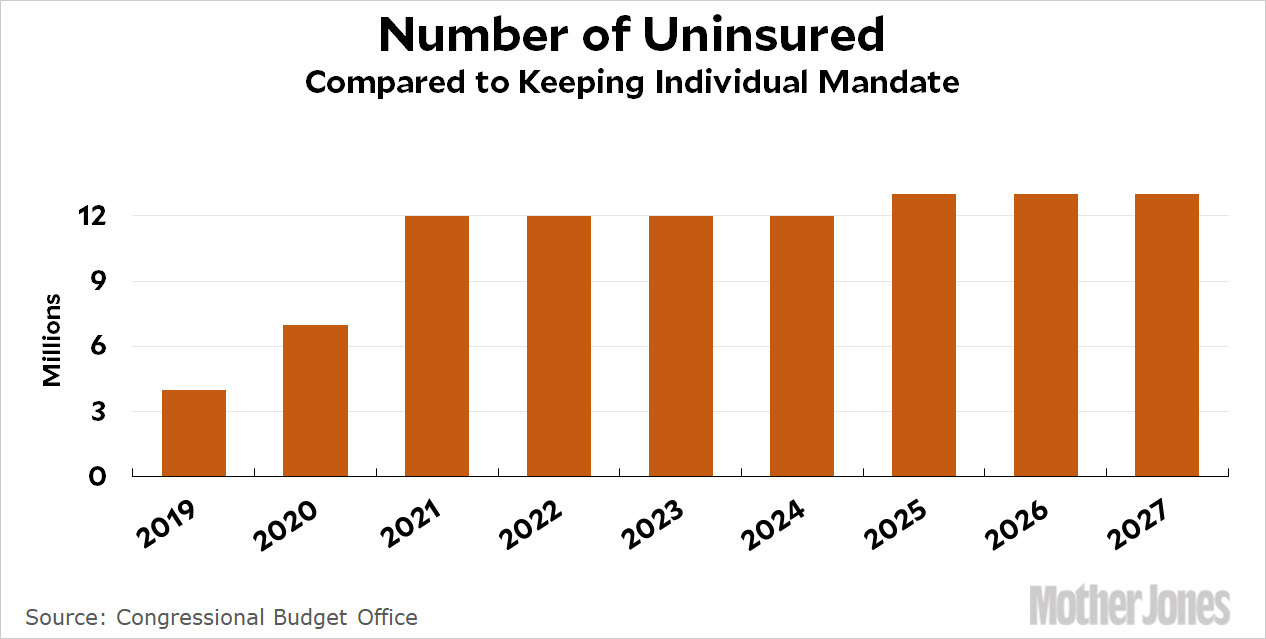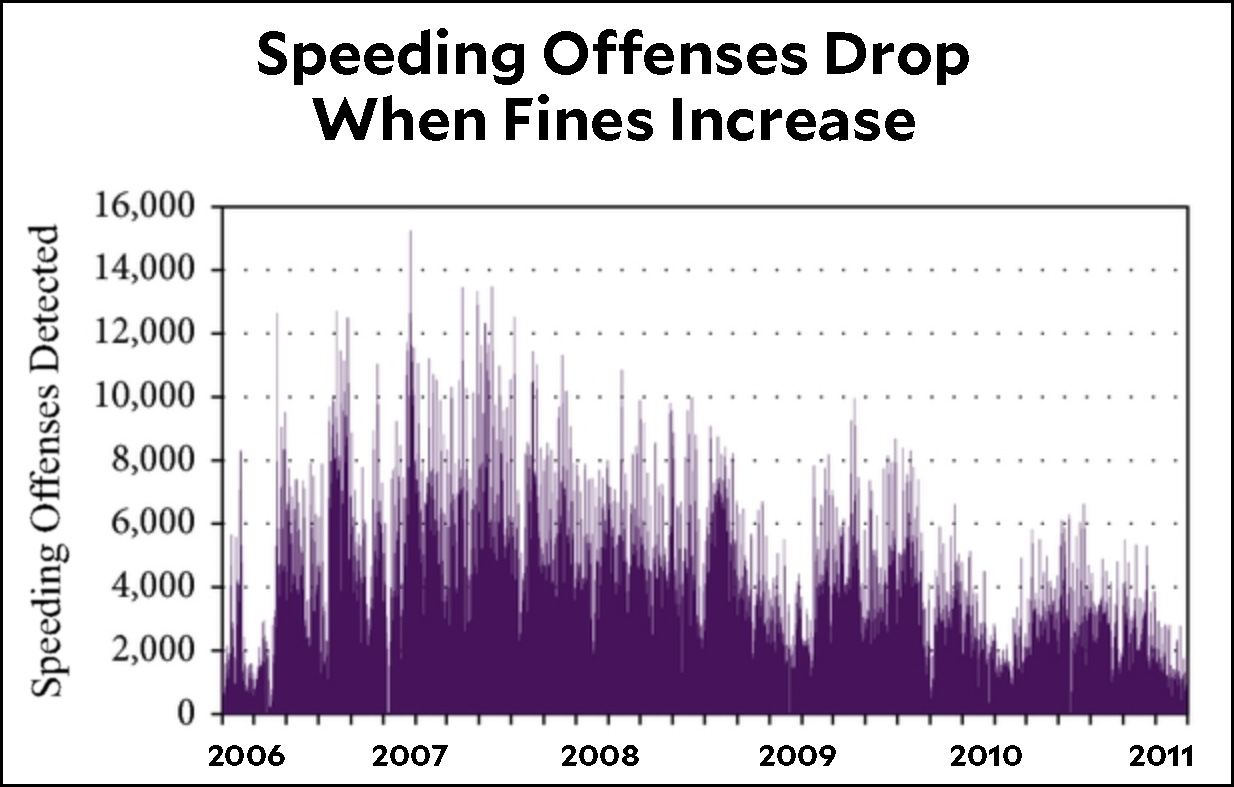This chart sits at the middle of a big controversy:

This is CBO’s estimate of how many people would skip buying health insurance if the individual mandate were repealed. Within two years, 12 million people would drop out, and they’d do it because the tax penalty for non-insurance went away: “In CBO and JCT’s estimation, with no penalty at all, only a small number of people who enroll in insurance because of the mandate under current law would continue to do so solely because of a willingness to comply with the law.”
Right now, the penalty is either $695 or 2.5 percent of your income. Very few people have a penalty greater than $1,500, while the cost of insurance is many times that. Is this really enough to motivate so many people to comply with the law? Republicans tend to think this is ridiculous, but both CBO and JCT have stuck to their guns on the mandate for years—and they aren’t staffed with idiots. Unfortunately, CBO is not in the business of explaining its methodology, so we have no way of knowing what this is based on.
But maybe we can take a crack at it ourselves by looking at other areas where individuals are fined for not obeying the law. Traffic offenses seem like a promising avenue of investigation, but there aren’t too many studies of how traffic fines correlate with breaking the law. However, a few years ago a study got released based on an increase in speeding fines in the Netherlands. It was especially noteworthy because the increase in fines could be checked against actual speeding, thanks to automated speed-measuring systems. The study’s conclusion is that fines have only a small effect: “If the fine increases by 1%, then the offence rate detected by an ASMS will decline by 0.14%.”

In the case of Obamacare, the penalty increased from zero, so we don’t have a percentage increase to work with. But let’s assume that for the average person this feels like a tripling of the fine. In that case, we’d expect a 28 percent decline in the offense rate. The total number of people uninsured before Obamacare took effect was about 45 million, which we can take as the starting “offense” rate. So that suggests the mandate was responsible for about 12-13 million people getting insurance.
There’s obviously a lot of guesswork here, since we don’t have a true baseline to work with. Nor do we know if the response to the mandate is similar to the response to speeding fines. Nonetheless, it gives us a ballpark kind of estimate, which matches up surprisingly well with CBO’s estimate. Apparently the individual mandate really does work.
NOTE: For what it’s worth, I did the arithmetic on this as I was writing the post. I didn’t know beforehand how it would turn out. Needless to say, I’d be interested in seeing similar correlations from other relevant studies.
UPDATE: This post originally contained a footnote about Adjusted Gross Income on your tax return, but it was wrong and didn’t really impact anything else very much. So I’ve deleted it.














